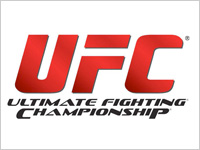By Trevor Fik (Staff Writer) – Email
I would be remiss in my duties as an MMA aficionado if I did not spend this week’s column discussing the recent acquisition of Strikeforce by UFC parent company Zuffa. In a move that sent shockwaves through the MMA world, the merger has provided more questions than answers, as fighters and fans alike look to the future of the world’s fastest growing sport.
The buyout of Strikeforce by Zuffa, which has long rumored to have been in the works by Zuffa owners Frank Fertitta III and Lorenzo Fertitta, essentially puts the UFC in the unique position of having a monopoly on the sport of MMA. And while competing promotions do exist (Bellator, MFC, Shark Fights), none can compete with the UFC in terms of resources, sponsorship, and, most importantly, fighter talent and division depth.
Dana White and the UFC brass, however, have made it clear that for the time being they intend to run Strikeforce as a completely separate entity, honouring all contracts and leaving the running of the company up to current Strikeforce CEO Scott Coker. Yeah, tell that to the fighters at Pride, WEC, and the WFA, all of whom were purchased by Zuffa and either absorbed at a later date or had their good sections picked apart in a mad MMA feeding frenzy.
With the acquisition of Strikeforce the roster of fighters under the Zuffa umbrella swells drastically from the 260 fighters currently on contract with the UFC to 400. The roster now includes past UFC fighters such as Dan Henderson, Paul Daley, Fabricio Werdum, and Andrei Arlovski, as well as notable competitors such as current Strikeforce Heavyweight Champion Alistair Overeem and the much sought after Fedor Emelianenko.
The matchups have many MMA fans salivating at the prospect of potential dream fights, ranging from a heavyweight bout between Emelianenko and Brock Lesnar, to the return of Dan Henderson to the middleweight division. Just months ago these fights were little more than an MMA fan’s wet dream; now they are as close as they have ever been to becoming a reality.
As listed above, Strikeforce will have the most to give in terms of heavyweight talent, but what of the other divisions? And what is to become of fighters such as Paul Daley and Josh Barnett, both of whom left the UFC under notoriously poor conditions? Well, White has taken an adamant “business as usual” stance in terms of UFC and Strikeforce operations. Many believe that it is only a matter of time before the UFC adds the entire Strikeforce roster to their fold, as they did with World Extreme Cagefighting (WEC) late last year. The difference is, however, that the much larger Strikeforce will swell the ranks of the UFC to the point where many fighters will be cut simply by virtue of having such a large stable of fighters.
The UFC, for better or worse, needs quality competition like Strikeforce. Separate entities such as these serve to allow promising fighters an arena in which they can hone their skills against other quality opponents. Not allowing them this would be the equivalent of having football players go straight from high school football to the NFL.
The level of play suffers, the quality of players is sub-par, and the ones who end up paying are the fans and owners.
The purchase of Strikeforce is a genius move as it will consolidate the UFC as the premier destination for MMA and establish the organization as a Mecca that fighters journey to in the harsh and unforgiving landscape of the MMA world.
Competing organizations will inevitable form to pick up the slack, and while issues of sponsorship and contracts will plague the early days of the Strikeforce/UFC merger, these issues will be worked out in a manner that benefits both fighters and fans alike. Dana White and the Fertitta brothers did not make the UFC the dominant organization for MMA by not appealing to its employees and consumers. While organizations will continue to rise and fall with the shifting allegiances of their fighters, the UFC will continue to hold dominance over MMA as long as the organization continues to give fans a quality and entertaining product.


